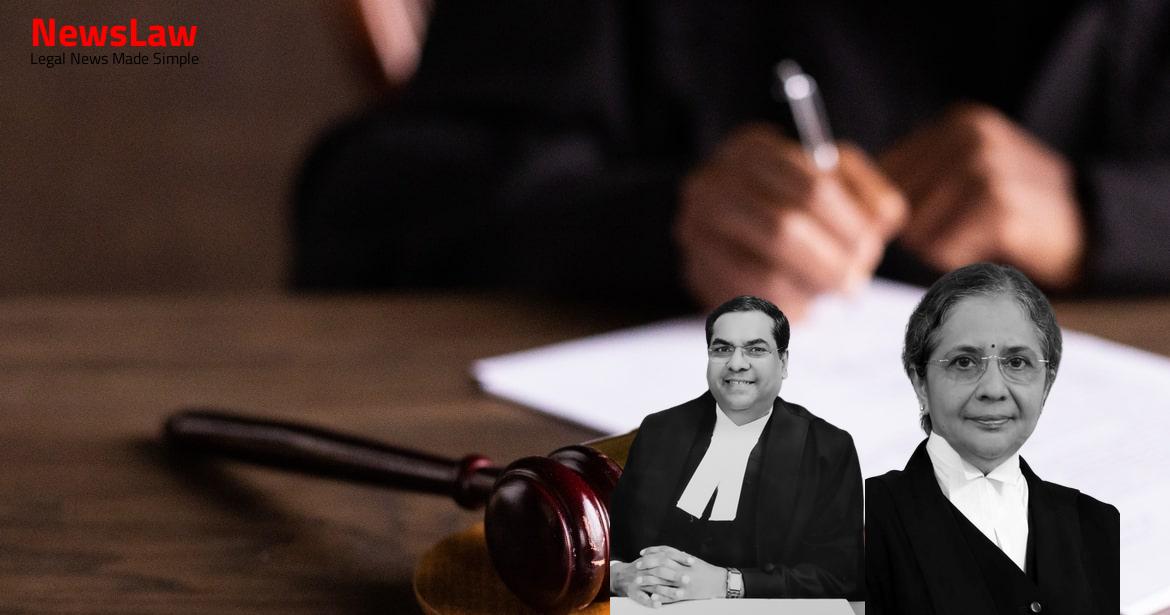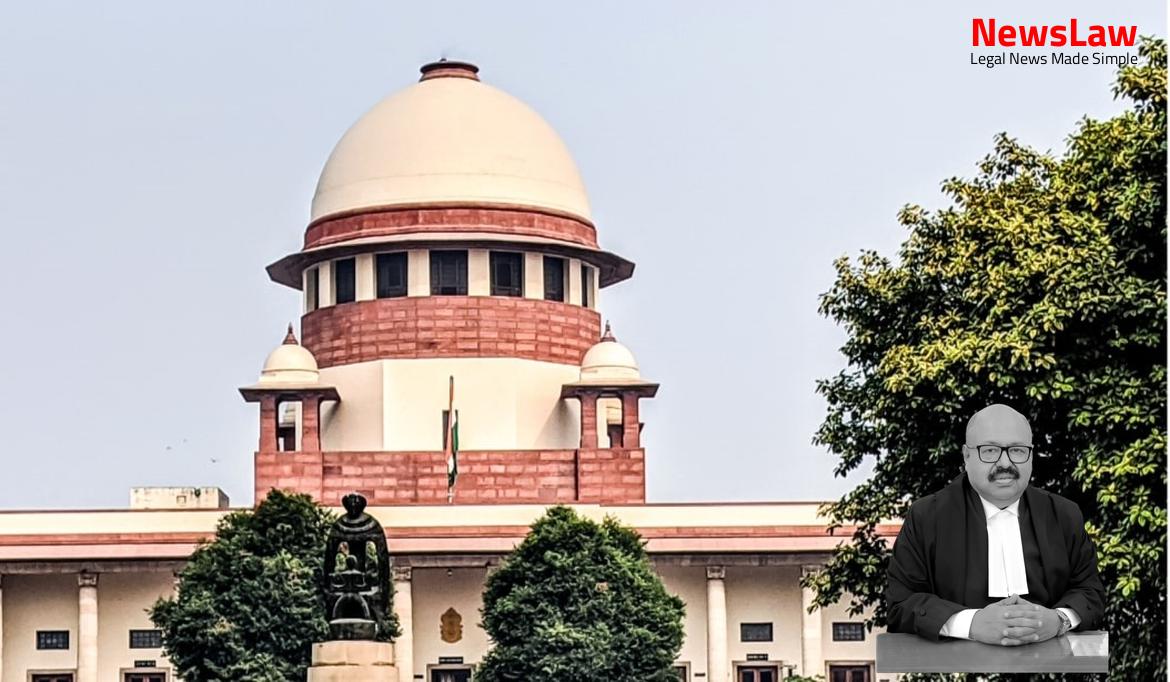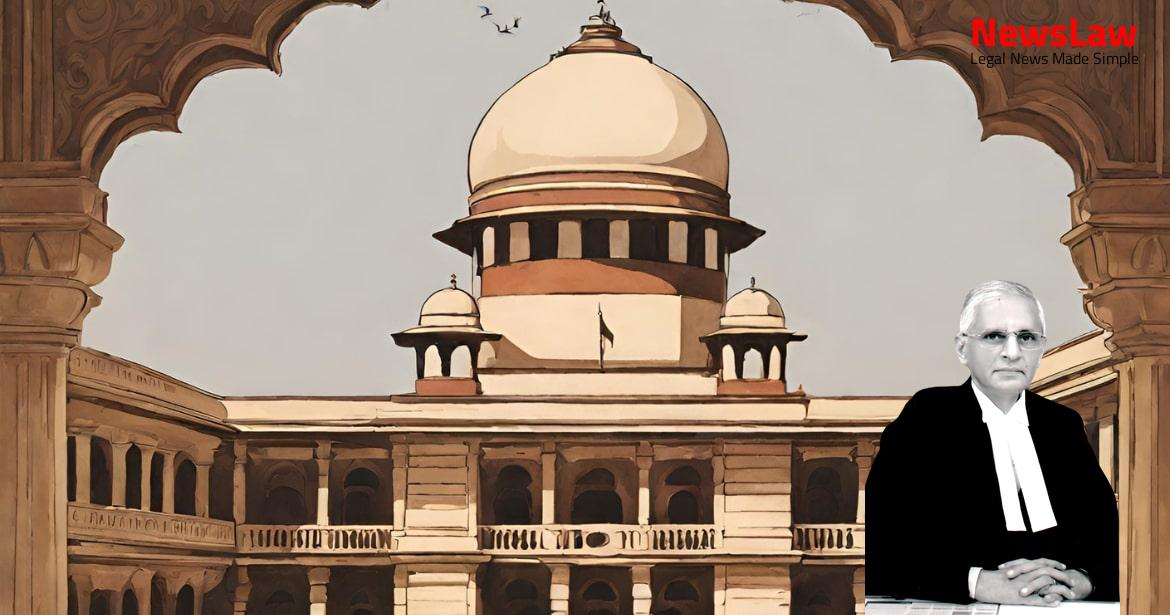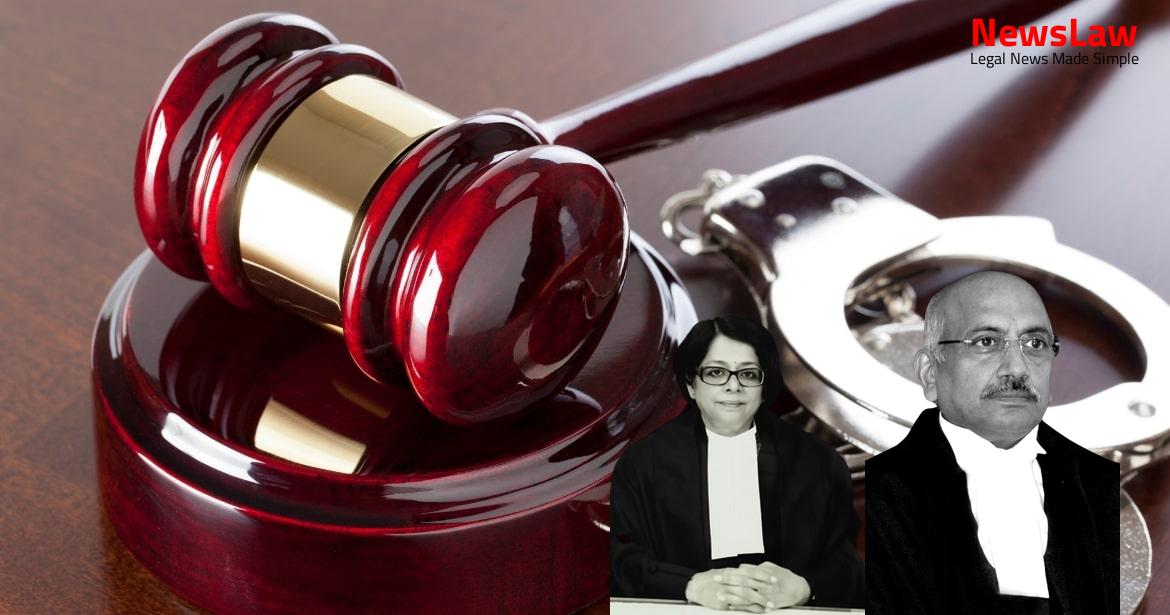Explore the court’s in-depth legal analysis on the importance of timeliness and equity in service-related claims. The court’s examination of timely action in service matters to ensure fair treatment for all employees sheds light on crucial principles of equity and justice. Let’s delve into the nuances of the court’s decision and its implications for similar cases.
Facts
- An anomaly arose due to inappropriate fixing of pay-scales by the respondent-Corporation.
- Excessive and unintended benefits were given to employees as a result.
- Prayer for recovery of arrears from 2010 was declined.
- The respondent-Corporation bore an improper and excessive financial burden.
- Benefit was withdrawn until the date of payment.
- The interpretation of the Scheme was accepted and not challenged by the respondent-Corporation.
- Judgment dated 16 August 2016 in Writ Petition SCA No 14370 of 2011 supported the contention of the appellants.
- The respondent-Corporation was directed to recompense the difference of arrears of pay with interest.
- Respondent-Corporation issued a second order on 12 September 2011, reiterating the decision on the pay-scale for Mukeshbhai Jaswantrai Joshi.
- Mukeshbhai Jaswantrai Joshi approached the court promptly, unlike the appellants.
- Interpretation of relevant clauses determined that Joshi was entitled to the pay-scale of the next promotional post.
- Appeals by employees challenged the High Court’s judgment, resulting in partial allowance due to delay.
- Appellants filed writ petitions in September 2017 against an order from October 2010 withdrawing their higher pay-scales.
- The Scheme adopted by the Corporation aimed to address issues concerning promotion for employees.
- Appellants were granted a higher pay-scale upon fulfilling certain undertakings.
- Order dated 28 October 2010 revised the benefits granted under the Scheme, leading to the recovery of excess payments from the appellants.
Also Read: Analysis of Bail Conditions in Criminal Appeal No. INSC 48/2024
Analysis
- The Court restricted the relief relating to arrears to only three years before the date of writ petition or from the date of demand to date of writ petition, whichever is lesser.
- Exception may not apply in cases where the judgment intended to benefit all similarly situated persons, irrespective of approaching the court or not.
- Delay and laches, change in de facto position or character, creation of third party rights, waiver, acquiescence, and certitude in dealings are considered in prescribing limitation periods.
- Doctrine of delay and laches, or statutes of limitations, are seen as statutes of repose and peace.
- Delay could affect the settled rights of third parties and impact the reopening of issues, affecting the claim for arrears.
- There is a discretion in constitutional courts to consider delay and laches in balancing public interest, fraud prevention, diligence, and oppression prevention.
- Rules of limitation do not apply to writ petitions, but delay and laches principles are applied to secure peace, prevent fraud, and quicken diligence.
- While some decisions do not favor pleas of delay and laches in cases of adeptness or incapacity, others view these rules as serving a larger public interest.
- There must be a lifespan within which a person must approach the court for their remedy.
- In cases affecting others, like issues of seniority or promotion, delay could render the claim stale and the doctrine of laches/limitation will be applied.
- Relief may still be granted in cases of payment or refixation of pay or pension, despite delay, as it may not affect the rights of third parties.
- Consequential relief of recovery of arrears for a past period is subject to principles of recurring/successive wrongs.
- The principle is that similarly situated persons should not be treated differently simply because others did not approach the court earlier.
- Exceptions to this principle include laches, delays, and acquiescence, where persons acquiesced into wrongful actions and challenged them only after others had succeeded in their efforts.
- The distinction between the injury caused by the wrongful act and the effect of the said injury is crucial.
- The case of State of Madhya Pradesh and Others v. Yogendra Shrivastava and Asger Ibrahim Amin v. Life Insurance Corporation of India followed the ratio in Tarsem Singh v. State Bank of India.
- The High Court accepted the interpretation regarding the pay-scale in the present case, granting the appellants the higher pay-scale from a specific date.
- The concept of continuing wrong and recurring/successive wrongs was explained in relation to the Limitation Act, 1963.
- The appellants’ claim for arrears from 2010 was rejected due to delay and equitable principles.
- The importance of not discriminating based on mere delay and the doctrine of laches in Courts of Equity were highlighted.
- Exceptions to the rule of rejecting belated service-related claims were discussed.
- The need for timely action in service-related matters to ensure fair treatment of all similarly situated persons was emphasized.
- The relevance of a continuing cause of action in service matters, with fresh causes of action arising monthly, was pointed out.
- The extension of benefits of judgments to similarly situated persons in service-related matters was discussed.
- Appellants’ prayer for refund of entire amount rejected
- Order dated 28 October 2010 pertained to collection by respondent-Corporation
- Refund of entire amount not deemed appropriate by the court
Also Read: Conviction Upheld for Murder and Concealment of Body
Decision
- Partly allow the present appeals with a direction for arrears in the pre-revised pay-scale of Rs.5,000-8,000 for three years prior to the filing of the Writ Petitions with interest at 7% per annum from 1 September 2017.
- No order as to costs.
Also Read: 1991 Decree Invalid: No Determination of Rights in Property Dispute
Case Title: RUSHIBHAI JAGDISHCHANDRA PATHAK Vs. BHAVNAGAR MUNICIPAL CORPORATION (2022 INSC 592)
Case Number: C.A. No.-004134-004134 / 2022



